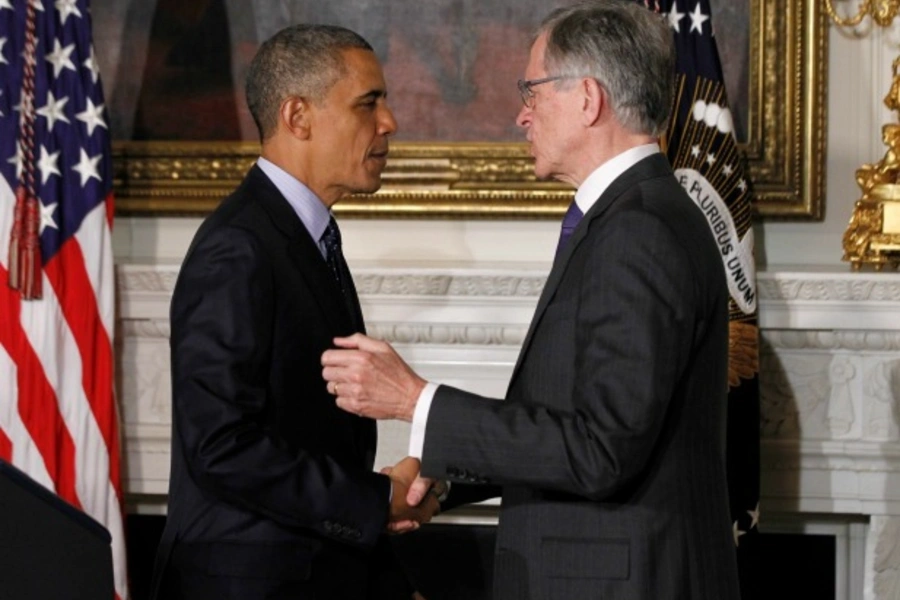Cyber Week in Review: November 14, 2014

Here is a quick round-up of this week’s technology headlines and related stories you may have missed:
- President Obama strongly recommended the Federal Communications Commission (FCC) adopt net neutrality rules. Reactions have been mixed, with Democrats largely applauding the move and Republicans calling it regulation of the Internet. According to the Washington Post, FCC Chairman Tom Wheeler, a former lobbyist for the telecommunications industry, seems to disagree with the president on the topic. A recent Foreign Affairs article by Marvin Ammori, future tense fellow at the New America Foundation, makes the case for supporting net neutrality. For a more humorous and easily digestible overview, check out John Oliver’s take on Last Week Tonight.
- The U.S. Federal Court for the District of Columbia ruled that the ownership of country code top-level domains (ccTLDs)—two-letter domains designated for countries, such as .UK for the United Kingdom or .JP for Japan—cannot be transferred to another party seeking to collect on a civil judgement. The Internet Corporation for Assigned Names and Numbers (ICANN) sought to quash a plaintiff’s request to seize the .KP (North Korea), .SY (Syria), and .IR (Iran) domains, given that the unilateral reassignment of ccTLDs might reaffirm existing perceptions and concerns that the United States controls the Internet.
- A collection of technology companies, including Facebook, Google, and Microsoft, wrote an open letter to European Union (EU) ministers responsible for telecommunications requesting that Internet-enabling services be excluded from the scope of the draft EU Directive on Network and Information Security. The directive would require certain companies operating in the EU, namely critical infrastructure providers, to comply with certain cybersecurity obligations, such as reporting cybersecurity incidents to a national computer security incident response team. It remains unclear whether the technology companies would be covered by the draft law, if at all.
 Online Store
Online Store